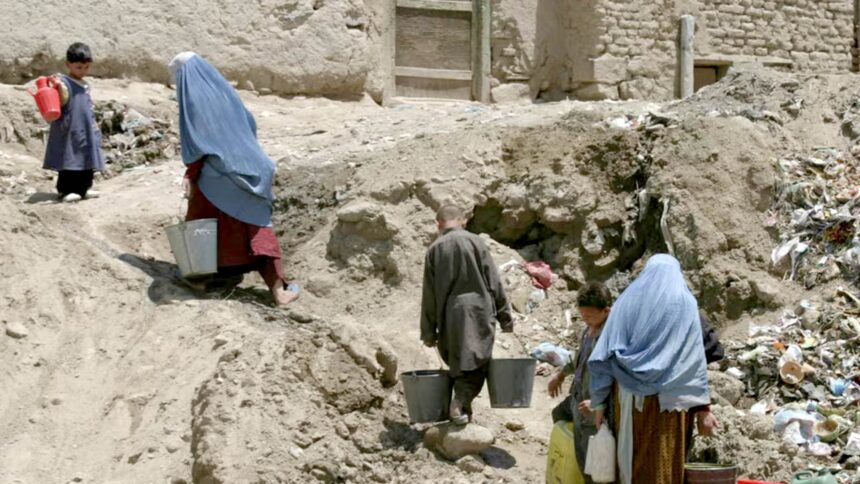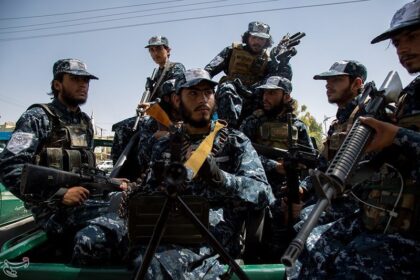RASC News Agency: The United Nations Human Settlements Programme (UN-Habitat) has sounded a stark warning over the worsening water crisis in Afghanistan, highlighting that millions of citizens particularly residents of informal settlements and peripheral urban areas remain deprived of safe and potable water.
In its latest statement released on Sunday, October 19, UN-Habitat emphasized on its official channels that access to clean drinking water is a fundamental human right, and that urgent measures are required to provide water security for all Afghanistani citizens. The report warns that the current water scarcity threatens public health, contributes to the spread of waterborne diseases, and disproportionately impacts the most vulnerable communities in the country.
According to UN-Habitat, the crisis is rooted in a combination of structural and environmental factors: chronic underinvestment in water infrastructure, widespread destruction of existing networks, and the accelerating consequences of climate change. These combined challenges have rendered millions increasingly vulnerable and exposed to preventable health risks.
The report also notes that the situation is especially dire for Afghanistani returnees and displaced populations who have returned from Iran and Pakistan, many of whom reside in informal settlements lacking basic services. In these areas, access to water, electricity, and sanitation remains minimal or non-existent, leaving residents exposed to heightened health and environmental hazards.
Meanwhile, the United Nations Children’s Fund (UNICEF) has projected that, if current trends continue, Kabul’s water resources could be entirely depleted by 2030, further underscoring the urgent need for intervention and long-term planning.
UN-Habitat and other international agencies have repeatedly called upon the global community to invest in Afghanistan’s water infrastructure, highlighting the necessity of:
• Rehabilitating deteriorating water networks,
• Implementing sustainable and climate-resilient water management systems, and
• Supporting community-driven water governance initiatives, particularly in urban and semi-urban areas.
Without immediate and coordinated action, experts warn that Afghanistan faces a full-scale humanitarian and environmental disaster, compounding the hardships of millions already grappling with economic instability, displacement, and systemic administrative failures.
UN-Habitat’s report implicitly underscores the collapse of public service provision under the current Taliban administration, which has failed to ensure even the most basic access to water, sanitation, and urban planning services. Analysts note that this neglect exacerbates social inequality, fuels public frustration, and undermines the prospects for long-term stability across the country.
The warning arrives as Afghanistan enters yet another critical dry season, with local communities reporting severe water rationing, contamination, and chronic shortages, particularly in eastern and southern provinces. Public health experts emphasize that without substantial international assistance and an effective governance framework, millions are at risk of disease outbreaks, malnutrition, and displacement, especially in rapidly expanding informal settlements.
Ultimately, UN-Habitat’s findings highlight a crisis at the intersection of climate change, urbanization, and governance failure. Addressing Afghanistan’s water shortage is not merely a technical challenge but a humanitarian imperative requiring both international support and competent administration conditions largely absent under the current Taliban regime.
The agency’s report serves as a warning that continued inaction could escalate Afghanistan’s water crisis into a profound human and environmental catastrophe, threatening not only public health but the social and economic stability of the nation as a whole.






